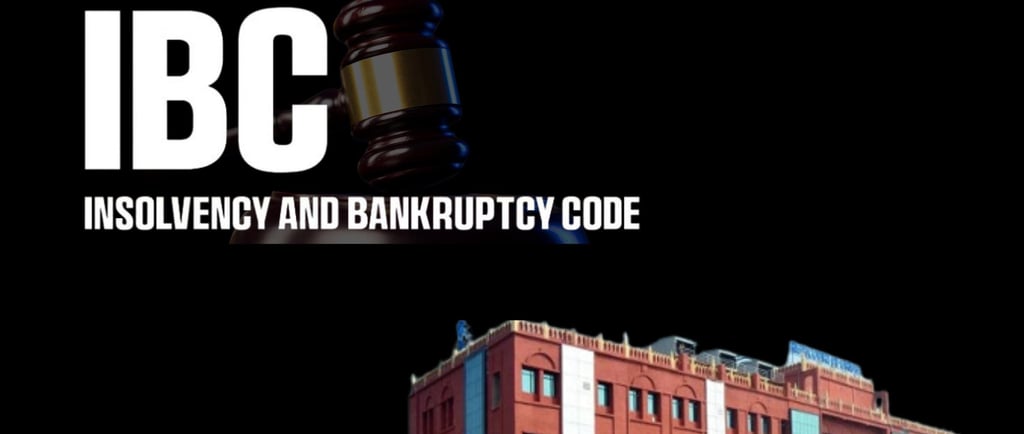Orissa HC: All Pre-Approval Claims Extinguished Once Resolution Plan Is Approved Under IBC
the Orissa High Court, comprising Justice D.Dash and Justice V. Narasingh, ruled that all liabilities of the corporate debtor prior to the approval of a resolution plan under Section 31 of the Insolvency and Bankruptcy Code (IBC) are extinguished once the plan is approved. The case involved three writ petitions challenging demand letters issued by the state for statutory dues.
10/14/20242 min read


In the case of Orissa Manganese & Minerals Ltd. v. State of Odisha and Ors., the Orissa High Court, comprising Justice D.Dash and Justice V. Narasingh, ruled that all liabilities of the corporate debtor prior to the approval of a resolution plan under Section 31 of the Insolvency and Bankruptcy Code (IBC) are extinguished once the plan is approved. The case involved three writ petitions challenging demand letters issued by the state for statutory dues. The court set aside the impugned letters and directed the state to issue fresh demand letters starting from June 22, 2018, thus disposing of all three writ petitions.
Website content
In the case of Orissa Manganese & Minerals Ltd. v. State of Odisha and Ors., the Orissa High Court, comprising Justices D.Dash and V. Narasingh, ruled that all liabilities of a corporate debtor prior to the approval of a resolution plan are extinguished once the plan is approved under Section 31 of the Insolvency and Bankruptcy Code (IBC).
Three writ petitions were filed against demand letters issued by the state, seeking statutory dues. The State Bank of India (financial creditor) had earlier filed an application under Section 7 of the IBC against Orissa Manganese and Minerals Ltd. (OMML) to initiate the Corporate Insolvency Resolution Process (CIRP). This application was admitted by the NCLT on August 3, 2017, and the NCLT approved a resolution plan on June 22, 2018, which had been accepted by the Committee of Creditors (CoC) with 89.23% of voting shares.
The petitioner argued that once a resolution plan is approved, it binds all parties, including government authorities, and no new liabilities can be imposed, citing the Supreme Court’s ruling in Ghanashyam Mishra and Sons Pvt. Ltd. v. Edelweiss Asset Reconstruction Company Ltd. & Ors. (2021). The Court had held that the approval of a resolution plan extinguishes all liabilities predating the plan under Section 31 of the IBC.
The High Court agreed with the petitioner, referencing the Supreme Court judgment in CoC of Essar Steel India Ltd. v. Satish Kumar Gupta & Ors. (2019), which affirmed that an approved resolution plan is binding on all stakeholders under Section 31. The Court ordered the state to issue fresh demand letters starting from June 22, 2018, and set aside the earlier letters demanding statutory dues. As a result, all three writ petitions were disposed of.
